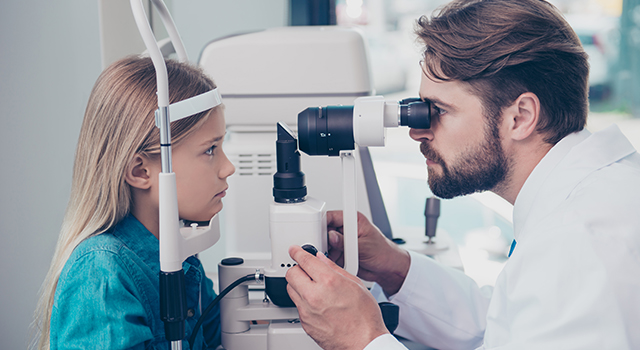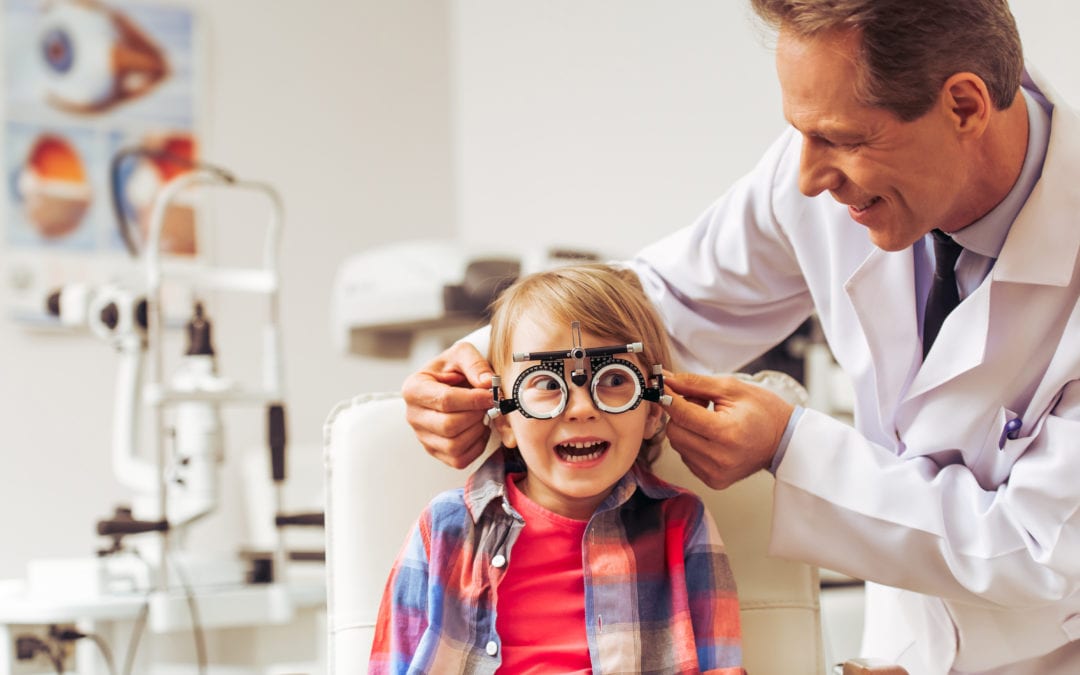Experienced Optometrist for Comprehensive Eye Examinations
Experienced Optometrist for Comprehensive Eye Examinations
Blog Article
The Relevance of Regular Eye Tests: Insights From a Knowledgeable Ophthalmologist
Regular eye examinations function as a vital component of medical care that prolongs beyond plain vision correction. An experienced ophthalmologist can provide insights into just how these examinations not only discover common eye conditions yet additionally disclose underlying health and wellness issues that might otherwise go unnoticed. The quiet development of conditions such as glaucoma and macular degeneration emphasizes the necessity of very early discovery. Comprehending the frequency and relevance of these analyses can ultimately affect one's long-lasting health and wellness trajectory, increasing the inquiry of how commonly individuals need to prioritize their eye health in the context of general wellness.
Benefits of Routine Eye Exams
Although lots of people might overlook the value of routine eye examinations, these assessments play an essential role in preserving general health and wellness and well-being. Regular eye examinations offer not only to analyze vision but likewise to discover very early indications of systemic health and wellness problems, consisting of diabetic issues and high blood pressure. By recognizing these problems at their beginning, people can receive prompt interventions, significantly improving long-lasting outcomes.
Furthermore, eye examinations can aid in keeping track of existing wellness problems, guaranteeing that any kind of modifications in vision or eye health and wellness are promptly attended to (optometrist). The evaluations permit personalized recommendations relating to glasses, way of living changes, and safety measures versus prospective eye stress or damages
Beyond physical health and wellness, the advantages of regular eye exams reach boosting lifestyle. Enhanced vision assists in far better performance in day-to-day activities, from checking out to driving, consequently contributing to better independence and security. Inevitably, prioritizing eye exams fosters an aggressive approach to health and wellness management, empowering people to organize their wellness. Regular check-ups are a vital element of a thorough health care approach, making certain that both vision and overall health are preserved throughout life.
Common Eye Issues Detected
Routine eye exams are instrumental in discovering a selection of usual eye conditions that can significantly impact vision and overall health and wellness. Among the most prevalent problems identified throughout these assessments are refractive errors, including nearsightedness (nearsightedness), hyperopia (farsightedness), and astigmatism. These problems frequently show up as blurred vision and can be easily fixed with prescription glasses or contact lenses.
In addition, cataracts, which trigger clouding of the lens, are regularly detected in older grownups. This condition can bring about diminished vision and requires surgical treatment for resolution. One more usual concern is glaucoma, a team of eye illness that harm the optic nerve, typically connected to raised intraocular pressure. Early detection is critical as it can protect against irreparable vision loss.
Age-related macular deterioration (AMD) is an additional considerable problem that impacts main vision, specifically in individuals over 50. Finally, diabetic person retinopathy, a problem of diabetes, can bring about serious vision impairment otherwise monitored consistently. Through thorough eye exams, these conditions can be determined early, enabling timely monitoring and therapy to protect vision image source and improve top quality of life.
Relevance of Early Detection
Very early discovery of eye conditions plays a crucial role in maintaining vision and stopping considerable health and wellness complications. Many eye conditions, such as glaucoma, diabetic person retinopathy, and age-related macular degeneration, can proceed silently without visible symptoms in their onset. By the time symptoms show up, irreversible damage might have happened, bring about long-term vision loss.
Normal eye tests help with very early medical diagnosis, enabling for prompt treatment and therapy. As an example, dealing with raised intraocular stress can protect against the beginning of glaucoma, while handling blood sugar levels can dramatically decrease the threat of diabetic retinopathy. Additionally, problems like cataracts can be efficiently taken care of with medical intervention when identified early.

How Often Should You See?
Establishing the frequency of eye exams is important for maintaining optimum eye health and wellness and vision. The general recommendation for grownups is to have a thorough eye test every one to two years, depending on private threat aspects and age.
Individuals with certain risk variables, such as a household background of eye condition, diabetes, or existing vision problems, may need more frequent examinations. Children should have their initial eye exam at six months of Look At This age, followed by added exams at age 3 and before getting in school. Routine check-ups during youth are important as vision can transform swiftly during developing years.
Eventually, the frequency of gos to should be tailored to each person's situations, consisting of lifestyle, occupational risks, and any pre-existing eye problems. Consulting with an eye treatment professional can offer personalized suggestions, guaranteeing that your eye wellness is consistently monitored and kept.
Tips for Your Eye Exam
Preparing for your eye test can improve the performance of the see and guarantee a comprehensive assessment of your eye health. To optimize your time with the eye medical professional, it is crucial to gather relevant information prior to your consultation. Start by assembling a listing of any type of drugs you are currently taking, consisting of over the counter medications and supplements, as these can impact eye health.
In addition, record any type of signs you have actually experienced, such as obscured vision, pain, or frustrations. This details will certainly aid your ophthalmologist in identifying potential problems. If you put on glasses or contact lenses, bring them along, also if you don't use them regularly. This will help the physician assess any changes in your vision.
It is also helpful to have a household history of eye conditions at hand, as genetic variables can add to your eye health and wellness. Lastly, think about arranging your examination for a while when you are much less hurried, enabling you to ask concerns and review your worries thoroughly. By preparing sufficiently, you guarantee that your eye exam is effective which your eye doctor has all the required info to supply the finest care possible.

Verdict
Normal eye exams play an essential function in keeping both vision and general wellness. Eventually, prioritizing comprehensive eye assessments adds substantially to the conservation of vision and the renovation of quality of life, underlining the necessity of regular eye treatment in precautionary medical care techniques.
Normal eye exams are instrumental in finding a selection of usual eye conditions that can considerably impact vision and general wellness.Figuring out the frequency of eye tests is essential for preserving optimum eye health and vision.Preparing for your eye examination can improve the efficiency of the see and make certain an extensive assessment of your eye health (optometrist). By preparing sufficiently, you make certain that your eye top article examination is effective and that your eye medical professional has all the necessary details to offer the best treatment possible
Eventually, prioritizing extensive eye assessments contributes substantially to the preservation of vision and the renovation of top quality of life, highlighting the need of routine eye care in preventive healthcare approaches.
Report this page